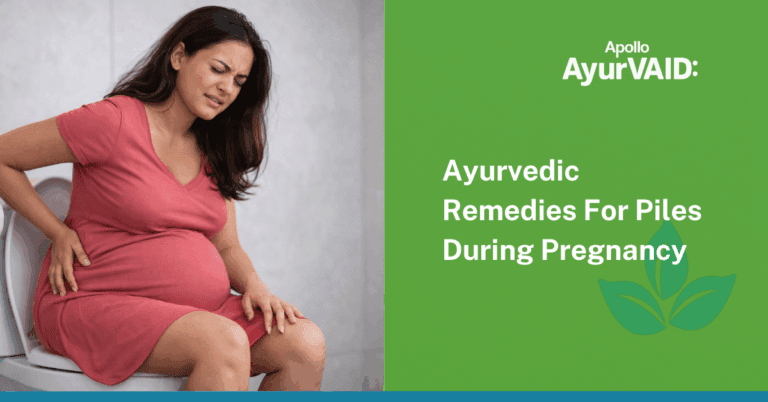
Web Stories
Step Into the Story: Explore Now
Introduction
The kidney stones or nephrolithiasis are hard deposits of minerals and salts that are formed inside the kidneys. They are of varying size -from a grain of sand to a golf ball. Factors such as dietary habits, fluid intake and genetic predisposition affect the formation process. The primary types of kidney stones include calcium oxalate, calcium phosphate, uric acid, struvite and cystine stones. Natural remedies and lifestyle changes, along with medications that dissolve stones (up to 8mm) are used in Ayurveda to remove stones without surgery. Ayurveda treatments are cost effective and safe with fewer side effects. The treatments are personalized to the patient’s constitution and stone characteristics, and are aimed at promoting overall wellbeing and improving kidney health.
In this blog we are going to learn about common causes of kidney stones, understanding kidney stones as per Ayurveda, Ayurvedic approach in treating the condition and important home remedies to cure kidney stones.
What are Kidney Stones?
Kidney stones are solid deposits that form when minerals and salts in the urine, such as calcium, oxalate, or uric acid, crystallize and stick together inside the kidneys. They can range from tiny grains to larger stones that may block the flow of urine. This can cause sharp pain in the lower back, side, or abdomen, along with nausea or difficulty passing urine. Dehydration, certain foods, and lifestyle habits often contribute to their formation. Recognizing the signs early and following natural or home-based remedies can help prevent stone growth and support easier passage.
Ayurvedic Understanding – Mutrashmari
In Ayurveda, kidney stones are known as Mutrashmari, a condition that occurs due to the imbalance of Vata, Pitta, and Kapha doshas, primarily Vata and Kapha. When these doshas disturb the normal urinary function, minerals in the urine begin to crystallize, forming stones in the kidneys or urinary tract. Ayurveda aims to restore balance through natural herbs, detoxification, and diet correction, helping dissolve the stones and prevent recurrence. The focus is on cleansing the urinary system (Mutravaha Srotas), relieving pain, and promoting healthy urine flow.

Understanding the Reasons for Kidney Stones
- Calcium Oxalate Stones: Over 80% of kidney stones are calcium oxalate, with oxalate metabolism playing a crucial role. Disorders in oxalate metabolism can increase stone risk.
- Dietary and Lifestyle Factors: Low fluid intake, dehydration, and specific dietary habits increase stone formation risk. Obesity, diabetes, and hypertension are linked to higher incidence rates.
- Anatomical Variations: Presence of Randall’s plaques- calcium deposition in kidneys, can predispose individuals to stone formation.
- Mitochondrial Dysfunction: Recent studies suggest mitochondrial dysfunction may contribute to the retention and aggregation of calcium oxalate crystals.
Common causes include:
- Dehydration
- High-sodium diet
- Excessive animal protein consumption
- Family history
- Obesity
- Certain medical conditions
- Inadequate fluid intake
- Mineral imbalances

Kidney Stones in Ayurveda Perspective
In Ayurveda, the kidney stones are known as Mutra Ashmari. Renal calculi are related to several factors, including dietary habit and lack of sufficient water intake, causing this condition. Both surgical and medicinal treatment of this condition have been covered by the Ayurvedic texts particularly the Sushruta Samhita that infers that holistic management approaches are important.
Causes of kidney stone as per Ayurveda
Kidney stones (Mutrashmari), according to Ayurveda, are caused by numerous causative factors, primarily due to dietary and lifestyle induced factors. Key causes include:
- Imbalanced Diet (Ahara): Intake of heavy, oily and processed foods, salt and sour can accumulate Kapha dosha contributing to stone formation.
- Inadequate Hydration: Improper hydration leads to concentrated urine, thus resulting in the formation of stones.
- Lifestyle Factors (Vihara): A sedentary life, irregular eating habits and inadequate physical activity increase the risk of kidney stones.
- Other Contributing Factors: Urolithiasis is also associated with conditions like sleeplessness, stress, and eating of fast foods.
Risk Factors
Kidney stones can form when the balance of water, minerals, and salts in the urine is disturbed. Several everyday habits and health factors can increase your risk:
- Dehydration: Not drinking enough water makes urine more concentrated, allowing minerals to crystallize and form stones.
- High Oxalate or Calcium Intake: Consuming too many oxalate-rich foods like spinach, beets, or nuts, or excessive calcium supplements, can lead to stone formation.
- Excess Salt: A high-sodium diet increases calcium in the urine, which may promote stone buildup.
- Too Much Animal Protein: Eating large amounts of red meat, poultry, or seafood raises uric acid levels, a common trigger for stones.
- Obesity and Sedentary Lifestyle: Being overweight or inactive affects how the body processes minerals, increasing stone risk.
- Family History: If kidney stones run in your family, your chances of developing them are higher.
- Certain Medical Conditions: Gout, urinary tract infections, and metabolic disorders can contribute to stone formation.
- Medications and Supplements: Overuse of vitamin D, calcium tablets, or diuretics may alter the body’s mineral balance.
Home & Herbal Remedies (with Usage)
Several Ayurvedic herbs and home remedies can help manage kidney stones naturally by reducing pain, promoting urination, and breaking down smaller stones.
- Punarnava (Boerhavia diffusa): Acts as a natural diuretic and helps flush out toxins and small stones through increased urine flow.
- Gokshura (Tribulus terrestris): Strengthens kidney function and soothes irritation in the urinary tract.
- Varuna (Crataeva nurvala): Helps break down stones and reduces the chance of new stone formation.
- Coconut water: Keeps the body hydrated, supports urine output, and reduces the acidity that contributes to stone formation.
- Lemon juice with warm water: The citrate in lemon helps prevent calcium deposits from forming into stones.
- Basil (Tulsi) juice: Taken daily with water or honey, it supports kidney function and helps in natural stone expulsion.
Always consult an Ayurvedic practitioner before starting any herbal remedy, especially if you have other medical conditions.
Diet & Lifestyle for Prevention
Preventing kidney stones requires a combination of proper hydration, balanced diet, and healthy habits.
- Stay Hydrated: Drink 2–3 liters of water daily to dilute urine and flush out stone-forming substances.
- Balanced Diet: Eat more fruits, vegetables, and whole grains. Limit high-oxalate foods like spinach, beets, and nuts if you’re prone to calcium oxalate stones.
- Reduce Salt and Animal Protein: Too much sodium or meat increases calcium and uric acid levels in urine.
- Include Citrus Fruits: Lemon and orange juices increase citrate, a compound that prevents stone formation.
- Maintain Healthy Weight: Regular exercise supports kidney function and overall metabolism.
- Avoid Processed Foods and Sugary Drinks: They can alter the body’s mineral balance and strain the kidneys.
Practicing yoga, meditation, and relaxation techniques also helps maintain hormonal balance and reduce stress, supporting overall kidney health.
Ayurveda approach for kidney stone treatment
In Ayurveda, we treat Kidney stones or Mutra Ashmari with a holistic approach. It includes dietary changes, herbal remedies, and lifestyle change. Key components of this approach include:
- Dietary Management: Avoid salty, sour and oily foods as they aggravate stone formation. Consequently, emphasis is made on eating alkaline foods and remaining significantly well hydrated in order to dilute urine.
- Lifestyle Modifications: Prevention of recurrence is recommended by regular physical activity, stress management and keeping a healthy weight.
- Integration with Modern Medicine: The management of kidney stones is encouraged by combining Ayurvedic principles and most modern medical practices.
- This is a multifaceted approach hoping to break up past stones without causing new formations and less potential for side effects commonly seen in conventional treatment.
Home Remedies for Kidney Stones
According to Ayurveda, smaller kidney stones can be eliminated by sticking to a suitable sattvic diet, consuming more water, and taking preventive measures.
- Increase consumption of vegetables, cereals, and fruits like carrot, cabbage, potatoes, and radish.
- Reduce consumption of refined wheat flour, oatmeal, bran, amla, black grapes, kiwi, chikoo, and strawberries.
- Consume barley water, buttermilk, coconut water, lemon water, sweet lime juice, and pumpkin soup, pomegranate juice, cucumber juices, Banana stem juice, horse gram soup in moderation.
- Consume these liquids daily to flush out kidney stones and provide pain relief.
- Consume sugarcane juice mixed with cardamom/ Tulsi seeds and milk/cumin seeds and honey / fennel seeds, coriander.
- Consume watermelon fruit at least once daily for its 92% water content.
- Consume Amla, Amla juice, or Amla powder to aid in detoxing the body and flushing out small kidney stones.
- Dietary modifications: increase fiber, reduce salt, limit animal protein, include citrus fruits, avoid processed foods.
Conclusion
Natural remedies, combined with proper diet and lifestyle changes, can effectively prevent and manage kidney stones. These Ayurvedic approaches offer safe, long-term solutions while promoting overall kidney health.
REFERENCES
- Keshwa, K et al. (2022). Aetiopathological and Analytical Evaluation of Mutrashmari and its Management through Ayurveda. AYUSHDHARA.
https://doi.org/10.
47070/ayushdhara.
v9isuppl1.1012 - Aamir, M et al. (2023). HYDROURETRONEPHROSIS: A COMPLICATION OF MUTRASHMARI: A CASE STUDY. August – September 2023. https://doi.org/10.46607/iamj17p7062023
- Baghel, D S et al. (2018). AMALGAMATION OF AYURVEDIC CONCEPT WITH MODERN MEDICAL PRACTICE TO MANAGE KIDNEY STONE DISEASE (UROLITHIASIS): AN ABBREVIATED REVIEW. INDIAN DRUGS. https://doi.org/10.53879/id.55.11.11267
- Tayal, S et al. (2012). Cytoprotective role of the aqueous extract of Terminalia chebula on renal epithelial cells. International braz j urol : official journal of the Brazilian Society of Urology, 38(2), 204-13; discussion 213-4. https://doi.org/10.1590/S1677-55382012000200008
- Gatkule, M A S et al. (2024). Review on Kidney Stone. International Journal of Advanced Research in Science, Communication and Technology. https://doi.org/10.48175/ijarsct-17245
- Singh, P et al. (2024). An update on natural bioactive components of traditional preparations for the treatment of nephrolithiasis; a review. Journal of Nephropharmacology. https://doi.org/10.34172/npj.2024.10545
- Alok, S et al. (2013). Pathophysiology of kidney, gallbladder and urinary stones treatment with herbal and allopathic medicine: A review. Asian Pacific Journal of Tropical Disease, 3, 496-504. https://doi.org/10.1016/S2222-1808(13)60107-3
2. Sodium-Rich Foods - Processed foods, canned soups, and salty snacks increase blood pressure and fluid retention.
3. High-Potassium foods like bananas and potatoes elevate potassium levels
4. High-Phosphorus foods include dairy products, nuts, and certain meats. 5. High sugar intake contributes to obesity and diabetes, risk factors for kidney disease.






